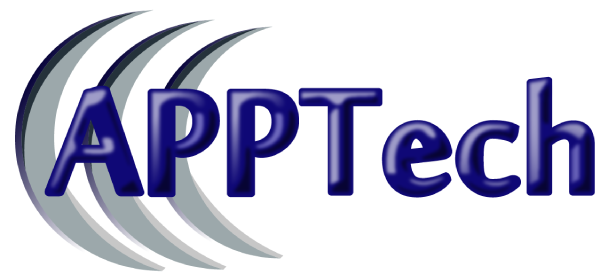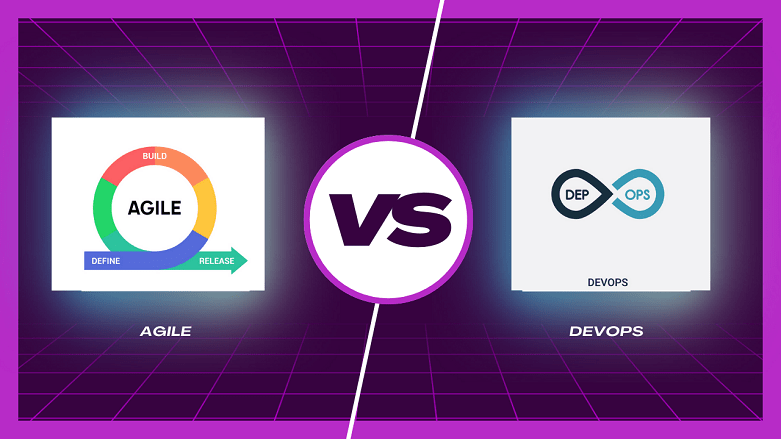Agile vs. DevOps: Finding the Right Approach for Your Software Development with Apptech Mobile Solutions
In the fast-paced world of software development, staying competitive and meeting customer demands is paramount. Two popular methodologies that have transformed the way software is developed and delivered are Agile and DevOps. In this blog post, we'll explore the differences between Agile and DevOps, their benefits, and how Apptech Mobile Solutions can help you choose the right approach for your software development needs.
Understanding Agile and DevOps
Before diving into the comparison, let's clarify what Agile and DevOps mean:
Agile Methodology
Agile is a software development methodology that focuses on iterative and incremental development. It emphasizes collaboration, customer feedback, and flexibility in responding to changing requirements. Agile teams work in short cycles or sprints, delivering working software at the end of each iteration. Key Agile frameworks include Scrum, Kanban, and Lean.
DevOps Philosophy
DevOps, on the other hand, is a set of practices and cultural philosophies that aim to bridge the gap between development (Dev) and IT operations (Ops). It promotes automation, collaboration, and continuous delivery, enabling teams to release software more frequently and reliably. DevOps encourages a shift-left approach, where development and operations work together from the beginning of the software development lifecycle to ensure smooth deployment and operation of applications.
Key Differences Between Agile and DevOps
-
Scope of Application:
- Agile: Primarily focuses on the development phase, improving collaboration among developers, product owners, and stakeholders.
- DevOps: Encompasses the entire software delivery pipeline, from development through testing, deployment, and operations.
- Objectives:
- Agile:Aims to deliver customer value incrementally through iterative development.
- DevOps: Focuses on achieving continuous integration, continuous delivery (CI/CD), and automating the deployment process to deliver software more frequently and reliably.
- Roles and Responsibilities:
- Agile: Defines specific roles, such as Scrum Master, Product Owner, and Development Team, each with its own responsibilities.
- DevOps: Encourages cross-functional teams where members share responsibility for the entire software delivery process, from code to deployment.
- Delivery Frequency:
- Agile: Typically delivers working increments of software in fixed timeframes (e.g., sprints).
- DevOps: Aims for continuous delivery, enabling software updates to be released as soon as they are ready.
- Automation:
- Agile: Automation may be used for testing, but the primary focus is on collaboration and iteration.
- DevOps: Emphasizes automation for building, testing, and deploying software to streamline the delivery pipeline.
- Agile: Utilizes feedback loops primarily between development and product stakeholders.
- DevOps: Encourages feedback loops across all stages of the delivery pipeline, including operations and customer feedback.
- Feedback Loops:
Benefits of Agile and DevOps
Both Agile and DevOps bring numerous benefits to software development, enhancing efficiency, quality, and customer satisfaction:
Benefits of Agile:
- Flexibility: Agile allows for changes in requirements even late in the development process, making it easier to adapt to customer needs.
- Faster Time-to-Market: By delivering working increments of software regularly, Agile shortens time-to-market.
- Improved Collaboration: Agile fosters collaboration among team members, promoting transparency and shared ownership of the project.
- Customer-Centricity: Agile prioritizes customer feedback and ensures that the delivered software aligns with customer expectations.
Benefits of DevOps:
- Automation: DevOps automation streamlines development and deployment processes, reducing manual errors and saving time.
- Reliability: Continuous testing and monitoring in DevOps ensure the reliability and stability of applications in production.
- Rapid Deployment: DevOps enables frequent and reliable software releases, facilitating rapid deployment of new features and fixes.
- Improved Communication: DevOps promotes better communication and collaboration between development and operations teams, reducing friction and enhancing efficiency.
Choosing the Right Approach with Apptech Mobile Solutions
Deciding between Agile and DevOps depends on your project's specific requirements, organizational culture, and goals. Apptech Mobile Solutions, with its extensive experience in software development and project management, can help you make an informed decision and tailor the chosen approach to your needs.
When to Choose Agile with Apptech Mobile Solutions:
- Project Scope Is Well-Defined: If your project has a clear scope and requirements, and you want to focus on iterative development with frequent customer feedback, Agile is a suitable choice.
- Customer-Centric Approach: If your organization places a strong emphasis on customer satisfaction and wants to involve customers in the development process, Agile aligns well with this philosophy.
- Small to Medium-Sized Projects: Agile is effective for small to medium-sized projects where frequent iterations and incremental delivery are feasible.
When to Choose DevOps with Apptech Mobile Solutions:
- Complex, Enterprise-Grade Projects: For large, complex projects with extensive infrastructure and multiple teams, DevOps provides the automation and collaboration required for success.
- High Deployment Frequency: If your business demands rapid and frequent releases to meet market demands or respond to competitive pressures, DevOps enables continuous delivery.
- Operational Efficiency: If improving operational efficiency, reducing downtime, and enhancing reliability are key goals, DevOps can help streamline operations.
- Cross-Functional Teams: If you're willing to establish cross-functional teams where members collaborate across development, testing, and operations, DevOps aligns well with this approach.
Realizing Success with Apptech Mobile Solutions
Regardless of whether you choose Agile, DevOps, or a combination of both, Apptech Mobile Solutions is your trusted partner for achieving success in software development. Here's how Apptech Mobile Solutions can help:
- Expertise: Apptech Mobile Solutions has a team of skilled professionals experienced in both Agile and DevOps methodologies, ensuring that your project benefits from best practices.
- Tailored Solutions: Apptech Mobile Solutions customizes its approach to fit your project's unique needs, whether it's an Agile project with frequent iterations or a DevOps project with streamlined automation.
- Continuous Improvement: Apptech Mobile Solutions is committed to continuous improvement, helping your organization evolve its development and delivery processes over time.
- Client-Centric Approach: Your goals and objectives are paramount at Apptech Mobile Solutions. They work closely with you to understand your vision and deliver software that exceeds your expectations.
Both Agile and DevOps offer valuable methodologies for software development, each with its unique strengths and focus areas. The choice between Agile and DevOps ultimately depends on your project's requirements and organizational goals. Apptech Mobile Solutions, with its expertise and client-centric approach, is your ideal partner for navigating this decision and achieving success in your software development endeavors. Whether you're aiming for flexibility and customer-centricity with Agile or automation and rapid deployment with DevOps, Apptech Mobile Solutions has the experience and commitment to help you reach your software development goals.


Leave a comment
Your email address will not be published. Required fields are marked *